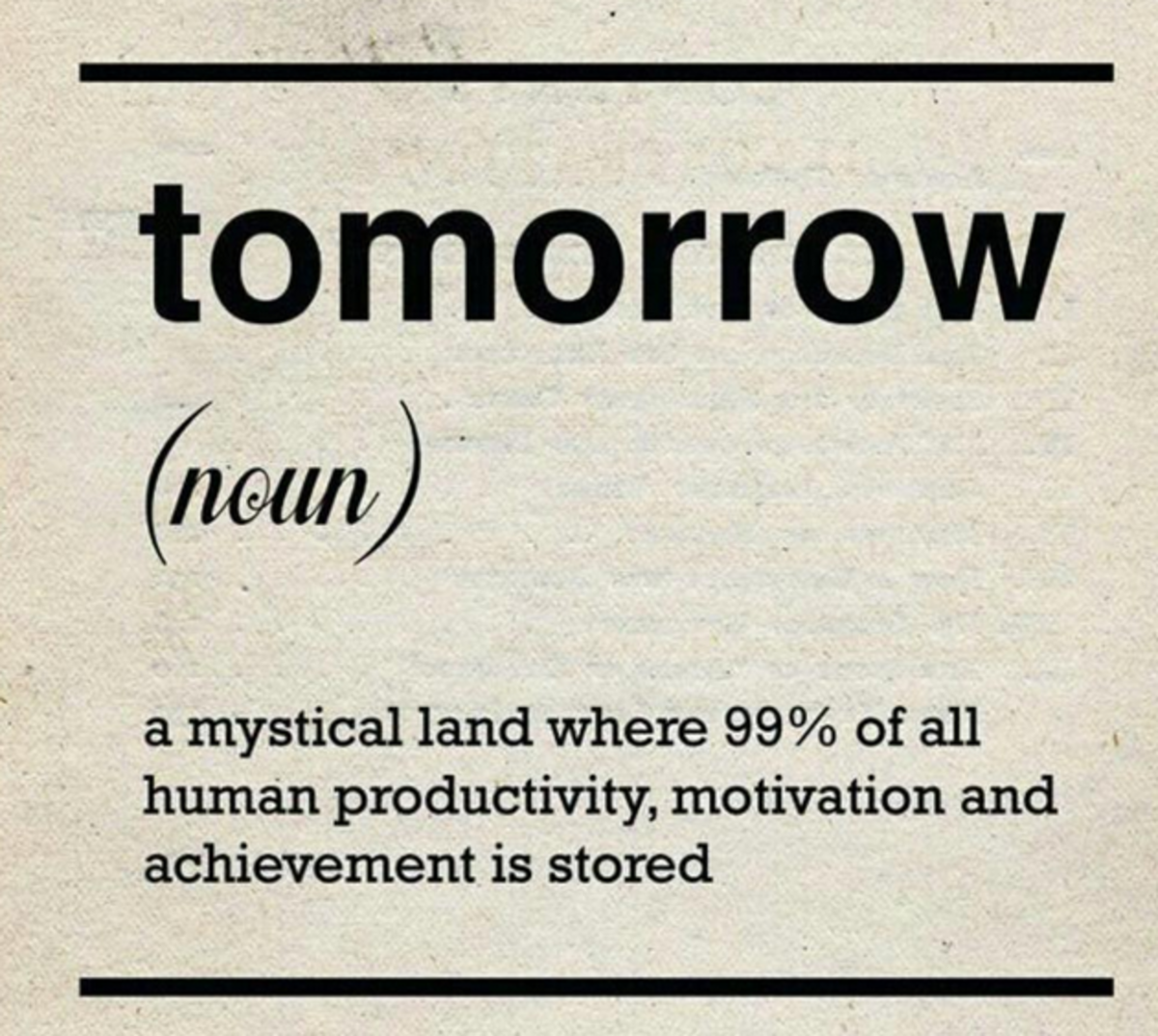The 7-Step Process to Break the 'Perfectionism, Procrastination, Paralysis' Cycle

Have you ever been in a situation where you think about all the tasks you should have accomplished by now, but there are so many of them that you get overwhelmed? Or have you ever had a difficult task that you keep putting off every time then you beat yourself up for being “lazy”? Yes, this phenomenon has a name— it’s called Perfectionism, Procrastination, Paralysis.
When we are given a task, we naturally envision how the outcome would be. The planning part is the best part of it all; we want the finished product to be perfect. But when it’s time to actually start the task, the doubt inside us starts to creep in. We start to question our ability which then leads to procrastination. And while we’re busy procrastinating, that little voice inside us will make us feel guilty for being lazy and incapable.
We’ve probably all been there, but that doesn’t mean you can’t break the cycle. Here are ways you can follow to break the cycle of perfectionism, procrastination, and paralysis.
1. Set the bar lower
The first step to breaking the cycle is to set realistic goals for your project. The journey will be rough and the outcome may not be the best— and it’s totally normal!
That’s the thing about being human— we make mistakes. We aim for the best but sometimes our best may not be what we’re aiming for. It’s okay to take your time. Make mistakes and learn from them.
2. Break down your tasks
Breaking down your tasks into smaller pieces makes it more manageable. Also, it gives you a frequent feeling of accomplishment every time you cross out a task from your list. Most of the time, the very act of crossing out a list instills a motivation to get more things done.
No task is small enough. It could be as small as, “Summarize my research.” Cross it off, feel good about your accomplishment, and repeat the positivity.
Remember, small tasks build momentum so be wise in setting tasks and breaking it down accordingly.
3. Track the time
It’s important to track the time it takes for us to complete a task. Not sure where to start? Try the Pomodoro Technique.
Choose a task you’d like to work on. Set the timer for 25 minutes and promise that you’ll devote that time to the task alone. Once the timer goes off, take a short 5-minute break. Take a long 30-minute break after 4 Pomodoros (1 hour).
By using this technique, you will realize how much time an activity actually requires— building confidence in your ability while cutting down interruptions.
4. Be surrounded by positivity and support
Remember that you are not alone. There are people who are willing to help and support you in any way they can.
Whether it’s your significant other, parent, or child, the best way to get organized is to seek support from a supportive companion. You can also reach out to your mentor or therapist to get some perspective.
5. It’s okay to say ‘no’
It’s alright to accept defeat and tell yourself that you can’t commit to everything. Sometimes we feel the need to impress everyone that’s why we take too many responsibilities— even the seemingly impossible ones.
Don’t take on too many responsibilities— it’s a sure-fire way to trigger you to fall into the self-destructive cycle.
Add limits to your schedule. Delegate some tasks if you can and say no to tasks that are not immediate or urgent.
6. Don’t hold yourself back from rewards
No one’s ever too old for rewards. In fact, it is an effective way to motivate yourself to get tasks done. No matter the size of the task—whether big or small— treat yourself to a walk or a chocolate bar. Giving yourself fun treats to look forward to is what breaks up the day. Plus, it turns your overwhelming to-do list into some sort of a challenge.
7. Be mindful
Stay in touch with your body and mindset while breaking patterns. When things get harder and anxiety starts to creep in, checking in with yourself is critical. Take a step back to give yourself reminders and breaks.
Don’t hesitate to take time off when you feel the anxiety building. Your body will surely thank you later.
© 2020 Marlito Dungog





